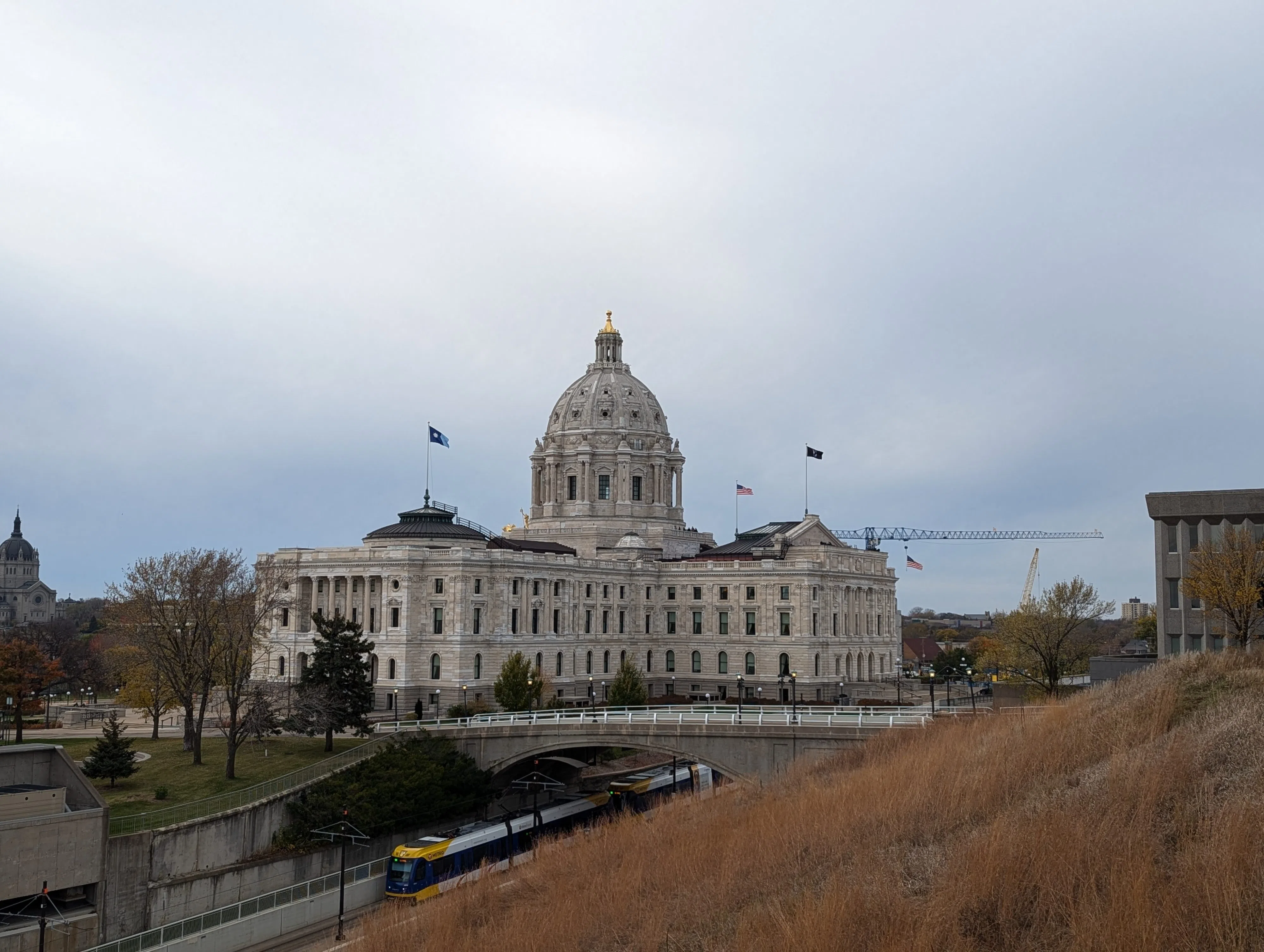
State Capitol in St. Paul (Ryan Janke, KFGO News)
ST. PAUL, Minn. (KFGO-WCCO) – State lawmakers are clashing over unemployment benefits for hourly school workers during the summer months that could be a sticking point in end-of-session negotiations.
A 2023 Minnesota law made employees like bus drivers, teacher aides and food service workers eligible for unemployment insurance between two academic years when students are on break. The state approved $135 million in supplemental aid to cover the cost instead of schools until 2027 or sooner if the money ran dry.
Now there is a debate over extending that funding — and by how much — and another about repealing the law altogether.
In the tied House, an education funding deal between Republicans and Democrats that will be officially published next week would end the expanded unemployment benefits in September 2028.
During a news conference Friday, workers impacted warned that any change would force them to quit in order to make ends meet. Cat Briggs, a school bus driver, said the benefits covered half of her weekly wages last year.
“That little bit of economic security meant that I did not have to choose between taking care of my kids — my bus, my kids — and my grandchildren,” she said. “If the legislature takes away my unemployment benefits, there is no way I can continue in my job, it will be economically impossible. I will have to resign.”
Workers like Briggs say the benefits have helped them stay in their jobs, while some school districts rebuff the claim that it helps with retention of employees. More than 21,000 hourly school employees are eligible for the benefits, according to the Minnesota Department of Employment and Economic Development.
But any proposed changes in the House bill next week are far from final. Education leads in that chamber will have to work with the DFL-controlled Senate and Gov. Tim Walz to hash out differences in all spending plans before the next two-year budget is actually complete.
In a statement, Rep. Ron Kresha, the Republican co-chair of the House Education Finance Committee said this about the proposal: “After Governor Walz proposed to cut school funding, the House GOP responded with a robust, flexible funding bill empowering schools to recruit and retain the best staff.”
House Speaker Lisa Demuth, R-Cold Spring, this week told reporters this issue was a sticking point during negotiations. Due to the tie, no bill will pass off the House floor without bipartisan agreement.
“When it gets put back on the taxpayers statewide, and then eventually it will be put back on the communities, the problem with that is we would be paying for people to stay home and not educate kids,” Demuth said. “Those are hourly workers that had temporary jobs, whether they were a few months or a few hours, whatever that would be. It doesn’t line up with regular unemployment.”
Meanwhile, the Senate education funding bill keeps the program in place and also earmarks more state aid to schools so they don’t have to pick up the tab. Many districts are facing budget shortfalls this year.
Rep. Emma Greenman, DFL-Minnepaolis, called the issue a “line in the sand moment for Democrats.”
“The choice is clear for DFLers: do we acquiesce to the Republicans’ cruel agenda of taking away things from workers, particularly our most vulnerable workers, or do we reject and resist GOP efforts to take away protections and benefits?” she said.
Lawmakers must adjourn session May 19 to avoid a special session, which has happened frequently in recent years when there has been divided state government.




Comments